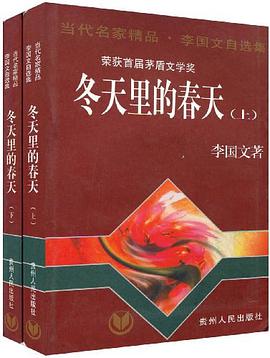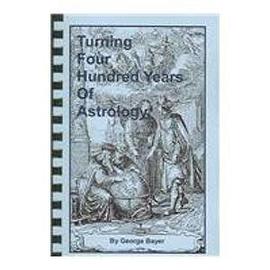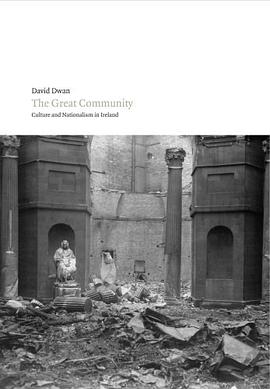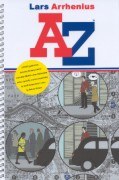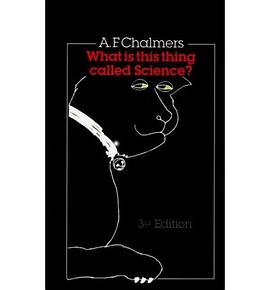

具体描述
This new edition of Chalmers's highly regarded and widely read work-translated into fifteen languages-is extensively rewritten and reorganized, reflecting the experience of the author, his colleagues, and correspondents in twenty years of teaching from the previous edition. Significant additions are new chapters on the Bayesian approach to science, the new experimentalism, the nature of scientific laws, and the realism/anti-realism debate. An ideal introduction to scientific method, Chalmers's work is both accessible to beginners and a valuable resource for advanced students and scholars.
作者简介
Chalmers was elected a fellow of the Academy of Humanities in 1997. His primary research interest is the philosophy of science and he is author of the best-selling textbook What Is This Thing Called Science? which has been translated into many languages.
He has been a visiting scholar at the Flinders University Philosophy Department since 1999. For the 2007 fall semester he was a visiting professor at the University of Pittsburgh.
Chalmers is an associate professor at the History and Philosophy of Science department of the University of Sydney.
Books:
Science and Its Fabrication, Open University Press and University of Minnesota Press, 1990, pp. 142+xii. (Translated into French, German, Dutch, Spanish, Korean, Portuguese and Chinese.)
What Is This Thing Called Science?, 3rd revised edition, University of Queensland Press, Hackett, 1999. (Originally published 1976; second edition: 1982.)
The Scientist's Atom and the Philosopher's Stone – How Science Succeeded and Philosophy Failed to Gain Knowledge of Atoms, Springer, 2009, pp. 288+xii.
目录信息
读后感
1.科学究竟是什么?科学家们不断感受、接触、总结、分析,探索了许久。 2.归纳主义科学观:以事实为基础,符合事实就留下,不符合事实就抛弃,归纳事实总结成理论,就是科学。 3.反驳:人类认知有限、观察工具效力有限等等原因,观察出来的“事实”可能是错的。一旦“事实”错...
评分1.科学究竟是什么?科学家们不断感受、接触、总结、分析,探索了许久。 2.归纳主义科学观:以事实为基础,符合事实就留下,不符合事实就抛弃,归纳事实总结成理论,就是科学。 3.反驳:人类认知有限、观察工具效力有限等等原因,观察出来的“事实”可能是错的。一旦“事实”错...
评分比较简单的科学哲学书籍,读的深入的话还是有所收获的,前几章非常清晰,后面批判归纳之后有些不如之前简明,可能因为问题也更加复杂了,或许由于出版时间关系本书只说道费耶阿本德,对于劳丹,邦格等没有叙述。
评分题目是乱写的,看起来不会那么无趣 一、科学的边界问题 首先,我只是一个被物理系拒收,不是很情愿(但却很幸运的外打正着)地跑去学社会科学的家伙。所以我对科学、科学家和科学研究活动并没有什么发表意见的资格,在此我只能本着对科学精神的敬畏与向往描述下我感知到...
评分应该说社科院哲学所邱仁宗先生是科学哲学界的老前辈了。不过,商务印书馆2007年出版、鲁旭东翻译的该书的另一中译本不论是对原文的理解上还是文字的通顺、易读上都比邱译要好。
用户评价
这本书最让我印象深刻的一点,是它对于“科学的界限”的探讨。我们往往认为科学无所不能,但作者似乎在提醒我们,科学也有其不可逾越的边界。他通过对科学解释的有效性和局限性的分析,让我看到了科学在面对某些问题时,可能存在的无力感。这种坦诚的讨论,反而让我对科学产生了更深的敬意。毕竟,认识到自己的局限,本身就是一种智慧。作者似乎在强调,科学是一种强大的工具,但它并不是解决一切问题的唯一途径,也不是唯一的真理。他引导我思考,在科学之外,还有哪些领域是值得我们去探索和理解的,例如艺术、伦理、哲学等等。这种对科学“边界”的清晰界定,让我对科学有了更准确的定位,不再将其神化,也不再将其妖魔化。我开始理解,科学的价值,在于其特定的方法论和解释框架,而人类的认知世界,则远比科学的疆域要广阔得多。这种认识,让我对接下来的阅读充满了好奇,想要知道作者将如何进一步拓展我们对科学的认知。
评分这本书的作者,似乎拥有一种独特的叙事能力,能够将那些原本晦涩难懂的科学哲学概念,用一种易于理解的方式呈现出来。我感觉到,他并不是在“教”我,而是在“启迪”我。他并没有给我答案,而是给我方法,让我自己去寻找答案。例如,当他谈论到“科学解释”的本质时,我仿佛看到他站在一个巨大的画板前,用不同的颜色和笔触,勾勒出各种各样的解释方式,然后让我自己去辨别哪一种更能触及事物的本质。这种鼓励独立思考的写作风格,让我觉得这本书不仅仅是一本科普读物,更是一本启发智慧的书。我不再仅仅是被动地接受信息,而是积极地参与到作者的思想旅程中。我开始在阅读中,不断地与作者的思想进行对话,质疑,反思,甚至在某些地方产生共鸣。这种互动式的阅读体验,让我觉得这本书的价值远超书本身,它激发了我对科学更深层次的探索欲望。
评分这本书的结构安排,给了我一种循序渐进的学习体验。作者并没有一开始就深入到那些高深的哲学理论,而是从最基础的问题入手,一步步引导读者进入科学的殿堂。我感觉自己像是在一个精心设计的迷宫中行走,每一步都有指引,最终能够抵达核心。他先是抛出了“什么是科学”这个大问题,然后逐步深入到科学的特征、科学的方法、科学的解释,甚至是科学的进步与局限。这种由浅入深的叙事方式,对于我这样一个对科学哲学了解不多的读者来说,非常友好。我能够消化和理解每一个章节的内容,并且能够将其与之前的知识点联系起来。而且,作者在不同章节之间,似乎都有巧妙的过渡,让整个阅读过程显得流畅而连贯。我不会感到突兀或者不知所云。更重要的是,在每一个论述的节点,作者都会适时地提出一些引人深思的问题,鼓励读者自己去思考,而不是被动地接受信息。这让我觉得,这本书不仅仅是在传授知识,更是在培养一种科学的思维方式。我期待着,在接下来的章节中,作者会如何进一步深化他对科学的剖析,又将带来哪些新的启示。
评分这本书的书名确实引人遐想,"What Is This Thing Called Science?"——多么直接又充满哲思的开篇!作为一个对科学始终抱有一丝好奇,但又常常在专业术语和复杂理论面前感到迷茫的普通读者,我翻开这本书时,内心是既期待又有些许忐忑的。期待的是能够借由这本书,拨开笼罩在“科学”二字上层层迷雾,触及其最本质的模样;忐忑的是,毕竟“科学”本身就承载着严谨、客观、逻辑这些沉甸甸的词汇,我担心自己是否真的能理解作者想要传达的核心思想。书页翻动间,我仿佛看到作者是一位耐心的向导,他没有直接给我一堆公式或实验数据,而是从更宏观的视角,带领我审视科学的“身份”。他似乎在问我:你以为的科学是什么?是那些在实验室里闪烁着奇异光芒的仪器?是报纸上那些令人惊叹的“突破性发现”?还是教科书里那些已被奉为真理的定律?作者似乎在暗示,真正的科学,远比我们日常所见的要复杂,也更有趣。他引导我思考,科学的形成过程本身就充满了曲折与争议,并非一蹴而就。这种对科学“身份”的探讨,让我开始意识到,我们所熟知的科学,其背后有着漫长而深刻的思想演变。它不是一个静态的实体,而是一个动态的、不断自我修正和发展的过程。我开始好奇,作者将如何一步步剖析这个“东西”,又将揭示出哪些隐藏在科学光环下的真相。我期待着,这本书能让我对“科学”这个词,有一个更深刻、更全面的认识,不再仅仅停留在其表面的辉煌,而是能够理解其内在的逻辑、方法和哲学基础。
评分在阅读这本书的过程中,我最大的感受就是,作者似乎在尝试解构我们对于“科学”这个概念的固有认知。他并没有直接给出一个“科学就是……”的定义,而是通过一系列的提问和引导,让我们自己去思考“科学”究竟是什么。这种“反客为主”的叙述方式,反而更能激发读者的主动性。书的开篇,我以为会是关于具体的科学理论或者发现,但出乎意料的是,作者首先聚焦于“科学”这个行为本身,它的起源,它的演变,以及它与人类思维方式的关联。他似乎在追溯科学的“血统”,探究它是如何从古老的哲学思辨中脱颖而出,逐渐形成一套独特的认识世界的方式。我脑海中不断浮现出历史上那些伟大的科学家,他们的思想火花是如何碰撞,他们的理论又是如何建立又被推翻。作者并没有神化这些过程,而是以一种相对客观和审视的眼光,去描绘科学知识是如何被生产、被检验、被传播的。这让我意识到,科学并非高高在上,而是深深植根于人类的实践和探索之中。而且,作者在处理不同学派、不同观点时,似乎都保持着一种平衡的态度,既承认其价值,也指出其局限。这种对科学内部复杂性和多样性的呈现,让我觉得这本书比我之前读过的任何一本关于科学的书都要来得真实和深刻。我开始明白,所谓“科学”,其实是一个不断试错、不断逼近真理的旅程,而我们每个人,或许都在以自己的方式参与其中。
评分这本书给我带来的最强烈的冲击,在于它对“客观性”这一科学核心概念的重新审视。我们通常认为,科学是绝对客观的,是独立于人类主观意志之外的。但这本书似乎在挑战这种观点,或者至少是在对它进行更 nuanced(细致入微)的解读。作者通过对科学方法的探讨,以及对科学理论是如何被构建和接受的分析,让我看到了“客观性”背后所隐藏的人类因素。他似乎在说明,即便是最严谨的科学研究,也无法完全摆脱观察者、理论框架、甚至社会文化的影响。这并不是说科学是主观臆测,而是说,科学的“客观性”是一种被建构起来的、相对的概念,它是在不断的检验和修正中,朝着更普适、更可靠的方向发展。我开始反思,很多时候,我们对科学的理解,可能过于简化了。我们看到了科学的强大预测能力和技术应用,但忽略了其背后所付出的努力,以及其固有的局限性。作者的论述,让我不再仅仅将科学视为一套冰冷的规则,而是理解为一种人类在与自然互动过程中,不断探索和逼近真相的努力。这种对“客观性”的深层剖析,让我对科学的本质有了更深刻的认识,也让我对接下来的阅读更加充满期待,想要知道作者将如何进一步展开他对科学的理解。
评分这本书的文字风格,给我的感觉是一种温和而睿智的引导。作者似乎并不急于抛出惊世骇俗的观点,而是娓娓道来,如同与一位老朋友在咖啡馆里畅谈。他善于用贴近生活的例子,或者历史上的有趣轶事,来阐述那些看似抽象的科学哲学问题。例如,当他谈论到科学的“证伪”原则时,我脑海中立刻闪过一些经典的例子,而作者的阐述,则让我更清晰地理解了“不可证伪”与“可证伪”之间的巨大差异,以及这对科学发展的重要性。这种叙述方式,避免了枯燥的说教,让科学哲学不再是象牙塔里的学问,而是触手可及,可以融入日常思考的工具。我尤其欣赏作者在引用和分析不同科学思想家观点时的严谨。他能够清晰地呈现每个人的核心论点,并对其进行合理的评价,而不是简单地照搬或批判。这让我感受到一种开放和包容的态度,也让我对科学思想史有了更立体的认识。我开始意识到,科学的进步,并非总是直线式的,而是充满了迂回和争论。很多看似“错误”的观点,在当时可能也是具有一定合理性的,并且它们的发展,也为后来的理论奠定了基础。这本书让我明白,理解科学,不仅要理解它的结论,更要理解它的过程,以及这个过程中所涉及到的各种思想的碰撞。
评分这本书让我开始重新审视“证据”在科学中的角色。我们常常认为,科学是基于证据的,但“证据”本身又是如何被确立和解读的呢?作者似乎在引导我思考,证据并非是天然存在的,而是需要通过一系列的观察、实验和理论来构建和解释的。他可能在说明,不同理论框架下,对同一现象的解读也可能截然不同,而什么样的“证据”才算得上是“科学的证据”,也并非一成不变。这让我意识到,科学的客观性,很大程度上依赖于其方法论的严谨性和共识的建立。我开始对那些看似确凿的科学结论,产生了一种更审慎的态度。我不再盲目地接受,而是开始思考,这些结论是如何被得出的,其背后是否存在其他的可能性。作者的论述,让我对“证据”这个概念有了更深刻的理解,也让我意识到,在科学的王国里,思辨和质疑同样重要。我期待着,在接下来的阅读中,作者将如何进一步揭示证据与理论之间的复杂关系。
评分在阅读这本书的过程中,我最期待的,便是作者如何处理科学的“不确定性”。我们都知道,科学追求的是精准和确定,但很多时候,科学的结论也伴随着一定的误差和不确定性。这本书似乎在深入探讨这种不确定性,并将其视为科学发展的一部分。作者可能在说明,正是因为存在着不确定性,科学才有了不断探索和修正的空间。他可能会通过对统计学、概率论等概念的引入,让我们看到,科学并非总是给予我们一个绝对的答案,而是提供一个概率性的、最有可能的解释。这种对“不确定性”的坦诚处理,让我觉得这本书更加真实和深刻。我不再觉得科学是完美的,而是理解为一种在有限条件下,不断逼近真理的努力。这种认识,让我对接下来的阅读更加充满信心,因为我相信,作者会以一种更全面和客观的视角,来剖析“科学”这个复杂而迷人的概念。
评分我一直对科学的“进步”这一概念感到有些模糊,总觉得科学是不断向前发展的,但具体是如何进步的,我并没有清晰的认识。这本书在这方面给了我很大的启发。作者似乎在探讨,科学的进步并非是直线型的,而是充满了波折和革命。他通过分析科学理论的更替,以及范式转移(paradigm shift)等概念,让我看到了科学是如何通过一次次的“颠覆”来实现飞跃的。我不再仅仅认为科学是知识的累积,而是理解为一种思维方式的迭代和升级。这种对科学进步机制的深入剖析,让我对科学的发展有了更动态和辩证的认识。我开始意识到,我们今天所熟知的科学,也是建立在无数前人的努力和探索之上的,其中不乏曾经被认为是“错误”的理论。作者的论述,让我不再仅仅看到科学的辉煌成就,更能理解其背后的艰辛和反复。我期待着,在接下来的内容中,作者会如何进一步阐述科学进步的动力,以及这种进步对我们理解世界有何深远影响。
评分 评分 评分 评分 评分相关图书
本站所有内容均为互联网搜索引擎提供的公开搜索信息,本站不存储任何数据与内容,任何内容与数据均与本站无关,如有需要请联系相关搜索引擎包括但不限于百度,google,bing,sogou 等
© 2026 book.wenda123.org All Rights Reserved. 图书目录大全 版权所有






